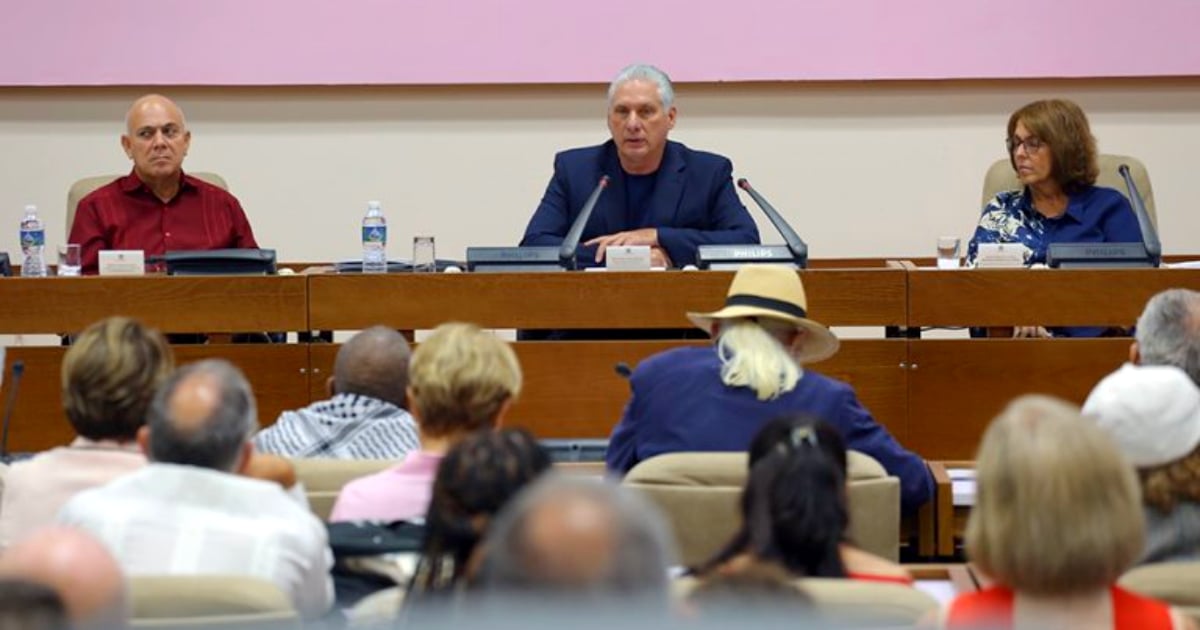Cuban leader Miguel Díaz-Canel acknowledged on Saturday the shortcomings of the controversial Decree Law 349 and the "elitist" tendencies of the government's cultural policies. He recognized that urban music genres, particularly reggaeton, continue to dominate the musical landscape on the island. During the closing session of the 10th Congress of the Union of Writers and Artists of Cuba (UNEAC), he urged regime-affiliated intellectuals to remain attuned to developments in this musical sphere and to pay attention "from the institutions to the new cultural expressions that emerge."
"There are still displays of disdain or underestimation from sometimes elitist standpoints. We are facing a cultural phenomenon that transcends the entrenched tastes of decades due to its strong social component and reach," Díaz-Canel remarked, hinting at the urban genre and especially reggaeton without naming them explicitly.
Cultural Defeat and a Shift in Strategy
After years of official cultural policy clashing with the "vulgarity" of urban music lyrics, particularly reggaeton, the regime has ultimately conceded defeat in its attempt to eliminate these genres from the musical preferences of the youth. Since 2012, reggaeton has faced censorship on music stations, which intensified after the February 2019 enactment of Decree Law 349, known as the "gag law." This law mandates Cuban musicians and artists to professionalize and affiliate with the Ministry of Culture, adhering to the regime's cultural guidelines.
In 2012, Orlando Vistel Columbié, then-president of the Cuban Institute of Music (ICM), declared, "Reggaeton will stop being heard in public places in Cuba, as well as other similar genres that use vulgar, banal, and mediocre expressions."
Resistance and Adaptation
Despite the official "cultural offensive," reggaeton continued to resonate among Cuban speakers and achieved success among its artists. Recognizing this reality, the Cuban regime has decided to abandon its previous stance and seek goodwill from the artists and fans of the urban genre, aiming to incorporate them into "the cultural policy of the Cuban Revolution."
"From these cultural expressions, primarily through music, ideas, values, life concepts, and signals of changing cultural paradigms are being generated that we cannot ignore or neglect," Díaz-Canel stated on Saturday.
According to the official portal Cubadebate, Díaz-Canel, who in 2019 claimed to have "nothing against reggaeton," warned that "by remaining absent from the phenomenon, by staying on the sidelines, we will never manage to influence their creations or incorporate them into the cultural policy of the Cuban Revolution."
The Changing Narrative
The days when intellectuals labeled reggaeton lyrics as "vulgar, banal, and mediocre expressions" and "pseudo-artistic productions" while advocating for "the promotion of good taste" are now behind. With the undeniable triumph of the so-called "bad taste," the Cuban regime is hastily revising its narrative, urging its intellectuals to embrace reggaeton as a form of "creative resistance" suited to the current times.
In March 2019, prophetic Cuban singer-songwriter Silvio Rodríguez commented, "Reggaeton is the cultural response to many things that have not been done in favor of large and growing social sectors; it is the result of accumulated injustices and missteps, combined with the ease with which one can now access resources to make oneself heard."
Instead of heeding this warning, the regime resorted to censorship, as usual. Five years later, Díaz-Canel seeks to neutralize the urban genre's potential for "rebellion," aiming to align it with "the cultural policy of the Cuban Revolution."
